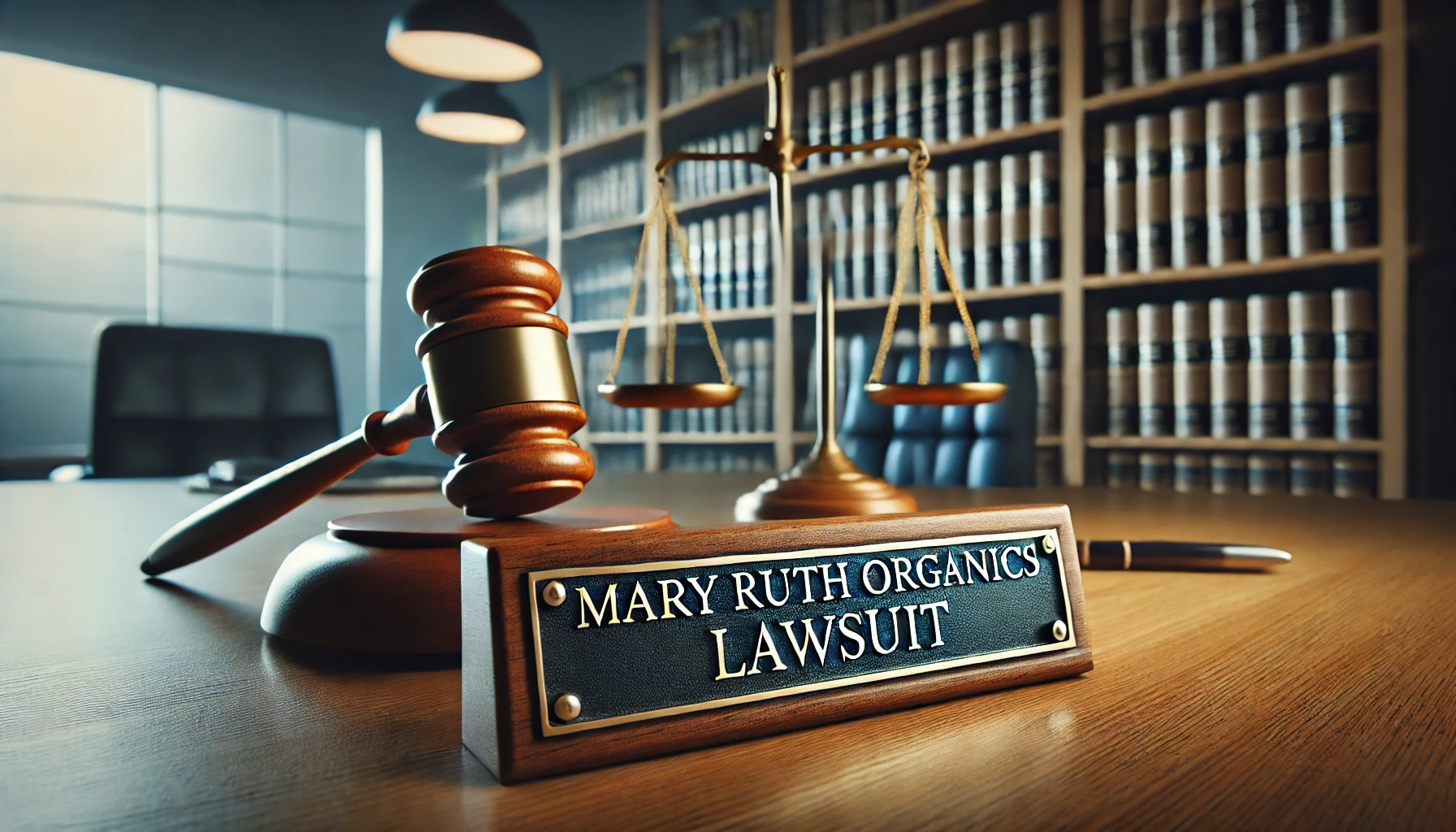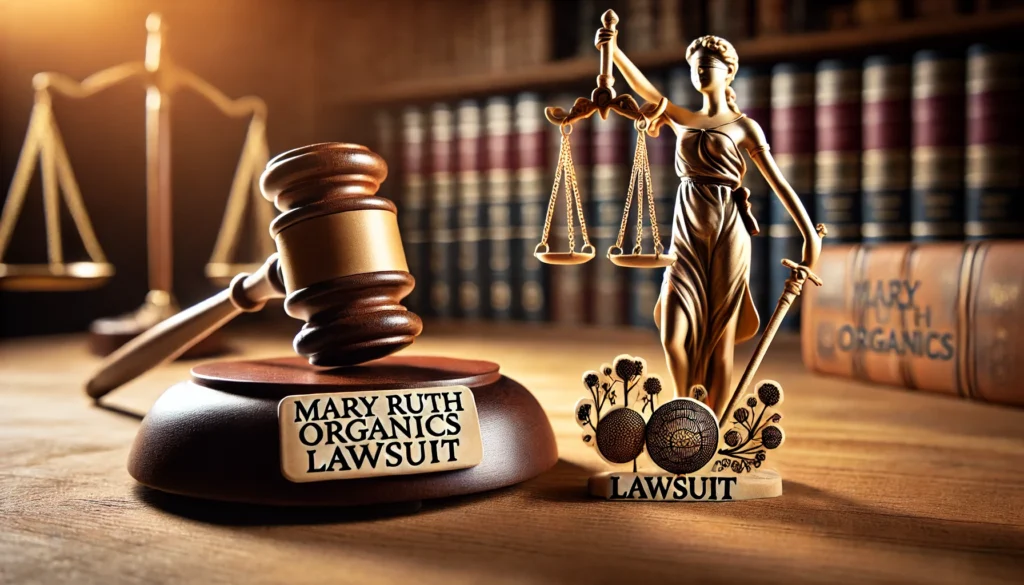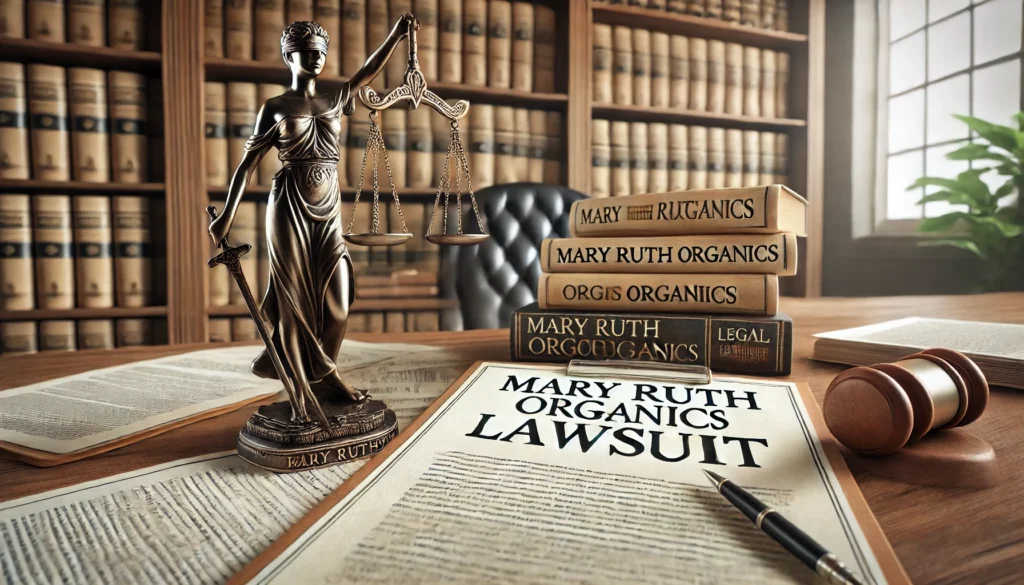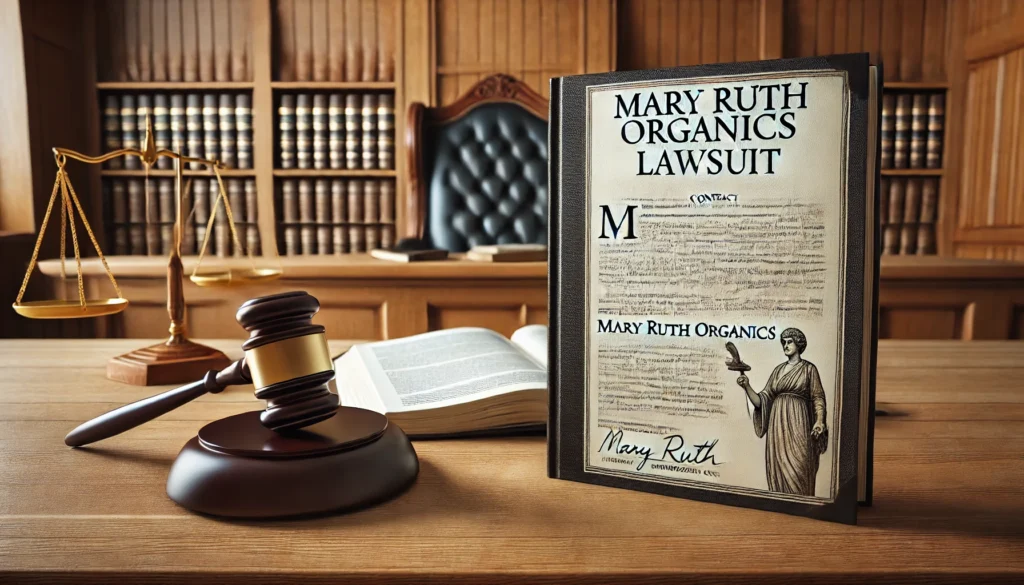Mary Ruth Organics Lawsuit: Insights on Legal and Product Issues

MaryRuth Organics is a well-known health and wellness brand that has made a name for itself by offering a wide range of supplements, vitamins, and probiotics, many of which are marketed as clean, organic, and family-friendly. The company has enjoyed a positive reputation, particularly among health-conscious consumers. However, like many companies in the wellness industry, it has also faced legal challenges, including the Mary Ruth Organics lawsuit, and product safety issues. This article explores two significant events in the company’s history: a trademark infringement lawsuit and a product recall. Understanding these events is key to grasping how the company has dealt with challenges in its pursuit of maintaining customer trust and brand integrity.
Understanding the MaryRuth Organics Trademark Lawsuit
In 2022, MaryRuth Organics, a prominent wellness brand, initiated a trademark infringement lawsuit against Doctor Danielle LLC. The lawsuit was based on claims that Doctor Danielle’s product packaging was too similar to MaryRuth Organics’ design. The similarities allegedly caused confusion among customers, which could harm MaryRuth Organics’ brand reputation and sales.
Trademark infringement disputes like this one highlight the importance of unique branding in competitive markets. MaryRuth Organics argued that its distinctive design was a key part of its identity and needed protection. However, in August 2022, the case was dismissed with prejudice, which often indicates a resolution outside of court, such as a settlement.
This case emphasized how crucial it is for businesses to safeguard their brand and for competitors to avoid designs that might overlap. For MaryRuth Organics, it was a learning experience in navigating the complexities of brand protection while maintaining focus on its mission of promoting wellness.
Trademark Infringement Lawsuit
Background of the Dispute
In January 2022, MaryRuth Organics filed a lawsuit against Doctor Danielle LLC, a company that also sells wellness products. The lawsuit was filed on the grounds of trademark infringement, alleging that Doctor Danielle’s product packaging closely resembled that of MaryRuth Organics. This similarity in design, color scheme, and overall look was claimed to be misleading to consumers and caused confusion regarding the brands’ identities.
Nature of Allegations
Trademark infringement occurs when a business uses a logo, name, or packaging that is too similar to another brand’s, potentially causing confusion among customers. In this case, MaryRuth Organics argued that Doctor Danielle’s packaging was so similar to its own that it violated trademark laws and could potentially harm its business by misleading customers.
Legal Proceedings
The case quickly entered the legal system, with both companies making their arguments in court. MaryRuth Organics sought to protect its brand identity, while Doctor Danielle LLC defended its packaging as being distinct and non-infringing. There was back and forth between the two parties, with discussions about how much similarity was too much.
Resolution
In August 2022, the case was dismissed with prejudice, which means the court decided to end the case permanently. This dismissal usually indicates that the dispute may have been resolved through a settlement or another out-of-court arrangement. The case highlights the importance of clear branding in the wellness industry, where packaging and product appearance can play a major role in consumer decisions.
Implications
The lawsuit’s dismissal may have given both companies a chance to move on, but it raised important questions about brand protection in the wellness sector. For MaryRuth Organics, it was a reminder of the challenges of differentiating their products in a crowded market.
Product Recall: Liquid Probiotic for Infants
Incident Details
In October 2021, MaryRuth Organics faced another major challenge: the voluntary recall of two lots of its Liquid Probiotic for Infants. The recall was issued after it was discovered that these lots were contaminated with Pseudomonas aeruginosa, a harmful bacterium. This bacterium can cause infections, particularly in infants or individuals with compromised immune systems.
Understanding Pseudomonas aeruginosa
Pseudomonas aeruginosa is a type of bacteria that can lead to serious infections, especially for people with weakened immune systems. In infants, the bacteria can cause severe health issues, making the recall especially concerning for families who trusted the product. The potential for harm from this contamination created serious public concern about the safety of MaryRuth Organics’ products.
Steps Taken by MaryRuth Organics
Once the contamination was discovered, the company took immediate action. It issued a recall and notified the public, including regulatory agencies such as the FDA. Customers who had purchased the affected products were offered full refunds, and the company encouraged them to dispose of the product. The recall was a critical step in protecting consumers and addressing the safety issue head-on.
Public Reaction
Naturally, there was concern among the public. Many customers expressed their worries about the safety of MaryRuth Organics’ products, especially after the recall. The company’s reputation, built on being a trustworthy brand, was now under scrutiny. Some customers questioned whether the company’s quality control processes were sufficient to ensure such a serious issue wouldn’t occur again.
Regulatory Oversight
The recall was overseen by health authorities, including the FDA, which ensures that companies comply with health and safety standards. The company’s swift response in recalling the product helped maintain regulatory confidence, but the event underscored the need for strict quality control procedures to avoid similar situations in the future.
Broader Implications for MaryRuth Organics
Reputation Management
For MaryRuth Organics, these two incidents— the trademark lawsuit and the product recall— could have a lasting impact on its reputation. The wellness industry is highly competitive, and maintaining consumer trust is vital. Legal issues and product recalls can tarnish a brand’s image, but how the company handles these situations can make all the difference. In both cases, the company acted quickly to resolve the issues, but they were forced to confront the reality that even small lapses in safety or legal protection can have wide-reaching consequences.
Quality Assurance and Safety
The product recall specifically highlighted the importance of maintaining rigorous safety standards. With an industry growing as quickly as wellness products, companies must ensure that every product meets high safety standards. MaryRuth Organics had to face the reality that while its products are designed to improve health, a single mistake in manufacturing can undermine the entire brand.
Legal and Business Practices
The trademark infringement case also taught valuable lessons in branding and legal disputes. By filing the lawsuit, MaryRuth Organics demonstrated how serious it is about protecting its brand. The case emphasized the need for businesses to be vigilant about their brand identity and ensure that competitors do not mislead customers with similar marketing materials.
Customer Trust
Rebuilding trust after such events is a long and challenging process. Customers want transparency, and MaryRuth Organics took the necessary steps to inform the public about the recall. By offering refunds and recalling the product quickly, the company showed it was committed to consumer safety. Moving forward, MaryRuth Organics will likely need to continue focusing on transparency and clear communication to regain any lost trust.
Lessons for the Wellness Industry
Quality Control
The MaryRuth Organics recall serves as a strong reminder of the importance of quality control. Every batch of products should undergo rigorous testing before reaching customers. This ensures that contaminants and other safety concerns are addressed before the product is shipped.
Brand Protection
The trademark lawsuit underscores how important it is for companies to protect their brand. Unique packaging and clear branding are crucial in distinguishing products in a crowded marketplace. Companies must ensure that they don’t inadvertently mimic others’ brands, which could lead to legal disputes.
Crisis Management
Both the trademark lawsuit and the recall provided valuable lessons in crisis management. For any company, having a solid crisis management plan in place is crucial. Being able to respond quickly, communicate effectively, and address issues transparently can minimize long-term damage to the brand.
Regulatory Compliance
Regulatory compliance should always be a priority. Following guidelines and ensuring that products meet safety standards can help prevent product recalls and protect customer health.
Conclusion
The legal battles and product recall experienced by MaryRuth Organics, including the Mary Ruth Organics lawsuit, were significant events for the company. While they posed challenges, they also provided an opportunity for the company to reassess its practices and take necessary steps to ensure consumer safety and brand integrity. In the ever-competitive wellness market, businesses must remain vigilant in protecting their products, brands, and most importantly, their customers. Through these trials, MaryRuth Organics has learned valuable lessons about legal protection, product safety, and crisis management, lessons that will undoubtedly shape its future endeavors.
FAQs
What was the MaryRuth Organics trademark lawsuit about?
The lawsuit alleged that Doctor Danielle LLC’s packaging resembled MaryRuth Organics, potentially confusing consumers, and was resolved with case dismissal in 2022.
Why did MaryRuth Organics recall its Liquid Probiotic for Infants?
In October 2021, it was recalled due to contamination with Pseudomonas aeruginosa, a bacterium that posed health risks to infants.
How did MaryRuth Organics address the product recall?
The company issued a voluntary recall, offered full refunds, and advised customers to dispose of the affected products.
Did the product recall impact MaryRuth Organics’ reputation?
Yes, it raised concerns about safety, but the company’s swift response helped demonstrate a commitment to consumer well-being.
What steps has MaryRuth Organics taken to prevent future issues?
Although specifics aren’t public, companies in such situations typically enhance quality control and transparency to rebuild trust.
Recommended Article:
No Demo Reno Lawsuit: Homeowners Claim Unsafe Renovations
Melissa Sutton Daughter of John Sutton: A Private Life Beyond Heartbreak
100 Day Dream Home Lawsuit: Allegations of Delays and Poor Workmanship
What Does Its Mean on a Contract: Understanding Its Purpose and Importance














































































































































































































































































































































































































































































































































































